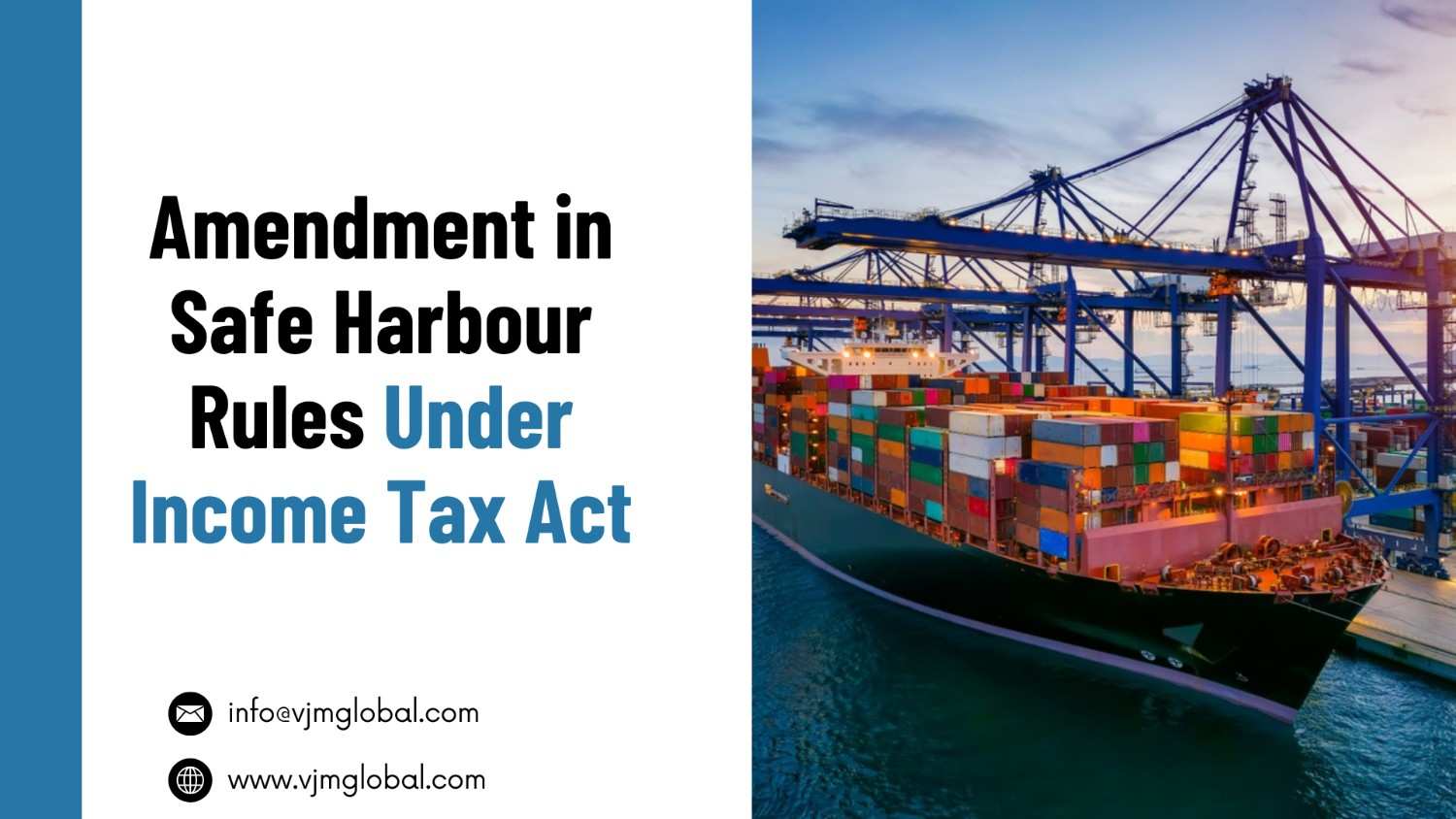
“Safe Harbour” means circumstances under which Income-tax authorities shall accept the transfer price declared by the assessee himself. Thus, 'safe harbour rules' specifies the various circumstances under which transfer price declared by the Assessee with respect to International transactions shall be accepted by Income tax authorities. Safe Harbour rule is given under Rule TD of Income Tax Rules, 1961.
Rule 10TD specifies various transactions wherein Tranfer price declared by the Assessee shall be accepted under specified circumstance. Such as, as per S. No. 1 of Rule 10TD, International transaction of software development services, The operating profit margin declared by the assessee from the international transaction in relation to operating expense incurred is -
Central Board of Direct Taxes (CBDT) has made amendment in Safe Harbour rules with respect to Operating Expenses, Operating Revenue and Scope of Inter-group scope vide Notification No. 104/2023-Income Tax dated 19 December 2023. Summary of latest amendment and corresponding analysis is given below:
Read Also: Faceless Assessment & Appeal Scheme|Transparency in Taxation System
Presently, as per Rule 10TA(f) of Income Tax Rules, “Intra-Group Loan” means Loans advanced to Wholly owned subsidiary, where the loan:
However, the definition of Intra-Group Loan has been amended with effect from 19th December, 2023. As per amended definition, Intra-Group loans means loans advances to Associate Enterprises being a non-resident. Requirement of Loan to be denominated in Indian currency has also been removed.
Therefore, loans given to associate enterprises, other than wholly owned subsidiaries, are also included under Intra-group loans. Further, to align the provisions of Rules 10TA with Rule 10DA, loans given in both Indian Rupee and other currency are included under Intra-Group Loan.
a. Loans Denominated in Indian Rupees:
Existing provisions
Amended Provision
b. Loans denominated in Foreign Currency:
Existing Provisions
As per Rule 10TD, with respect to Intra-group Loan denominated in Foreign Currency, interest rate declared in relation to the eligible international transaction is not less than the six month London Inter-Bank Offer Rate (LIBOR) of the relevant foreign currency as on 30th September of the relevant previous year plus 150 basis points, where the associated enterprise has CRISIL credit rating between AAA to A or its equivalent. Different basic points are to be added as per Credit rating of Associate Enteroses.
Presently, Interest rate is determined as per LIBOR of the relevant foreign currency and credit rating of the Associate enterprise given by CRISIL.
Amended Provisions
As per amended provisions, Interest rate shall be determined as per reference rate of the relevant currency and Credit rating assigned to the Associate enterprises by the Security Exchange Board of Indian and Reserve Bank of India accredited Credit Rating agency. Further, Separate categorisation, where the loan advanced to the Associate enterprises including loans to all Associate Enterprises exceeds and does not exceed a sum equivalent to INR2.5bn, with a markup ranging from 150 basis points to 600 basis points.
Reference rate means rate determined by difference agency for every currency, Such as:
With the cessation of LIBOR, the notification of alternative reference rates (e.g. SOFR, EURIBOR, SONIA, TORF, BBSW and SORA) was a necessary amendment. Moreover, only a CRISIL-assigned credit rating of the AE was earlier recognised for the purpose of Safe Harbour. Post the amendment, credit ratings assigned by any SEBI registered and RBI-accredited credit rating agency will be recognised for the purpose of the Safe Harbour.
The rationalization of the Safe Harbour Rules is certainly a welcome amendment for the taxpayer community in India. It was essential to bring loans granted to Associate enterprises, other than wholly owned subsidiaries, under the umbrella of Harbour Rules. Also, considering Credit rating assigned by Credit Rating Agencies, other than CRISIL, also makes harbor rules more flexible.
